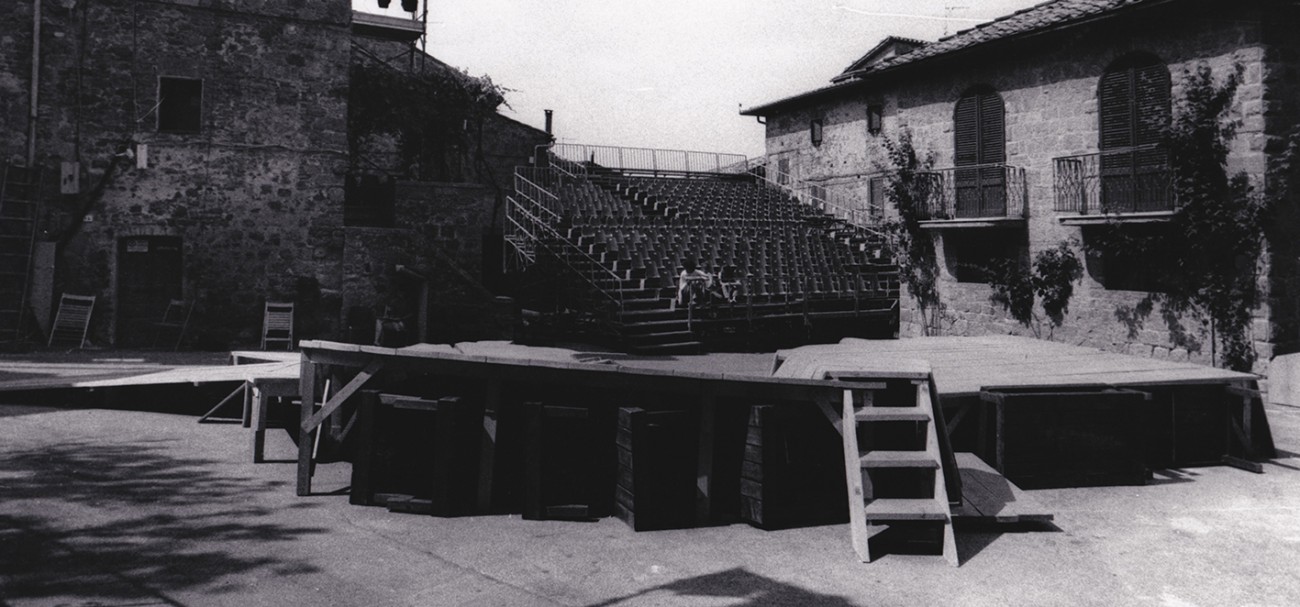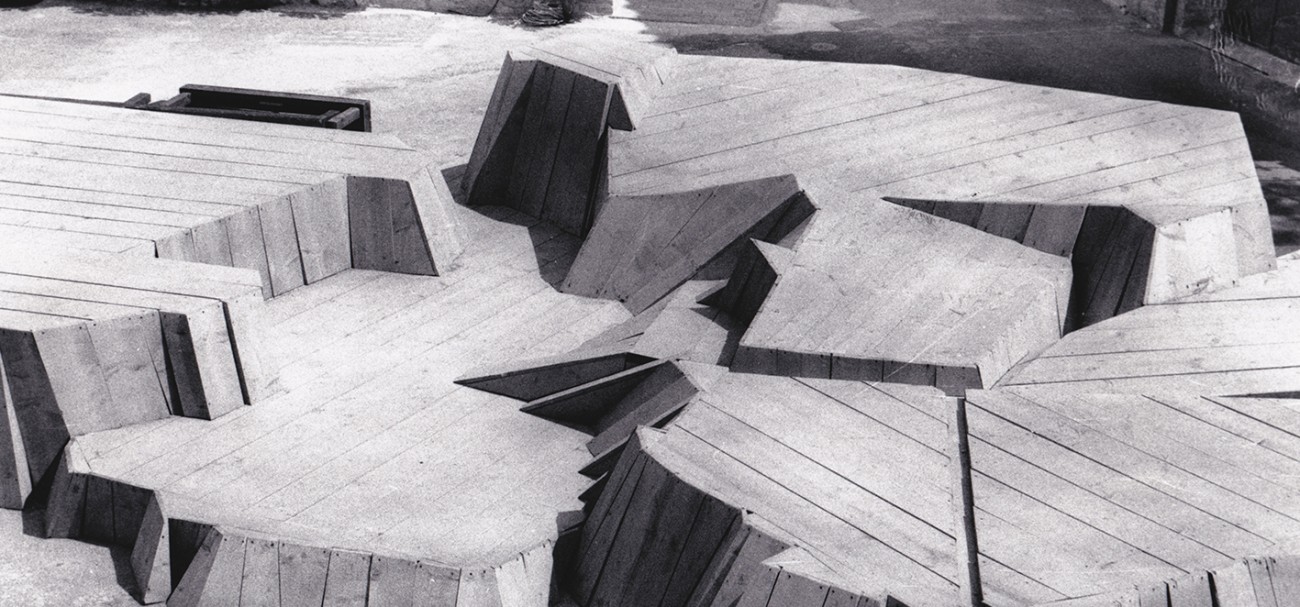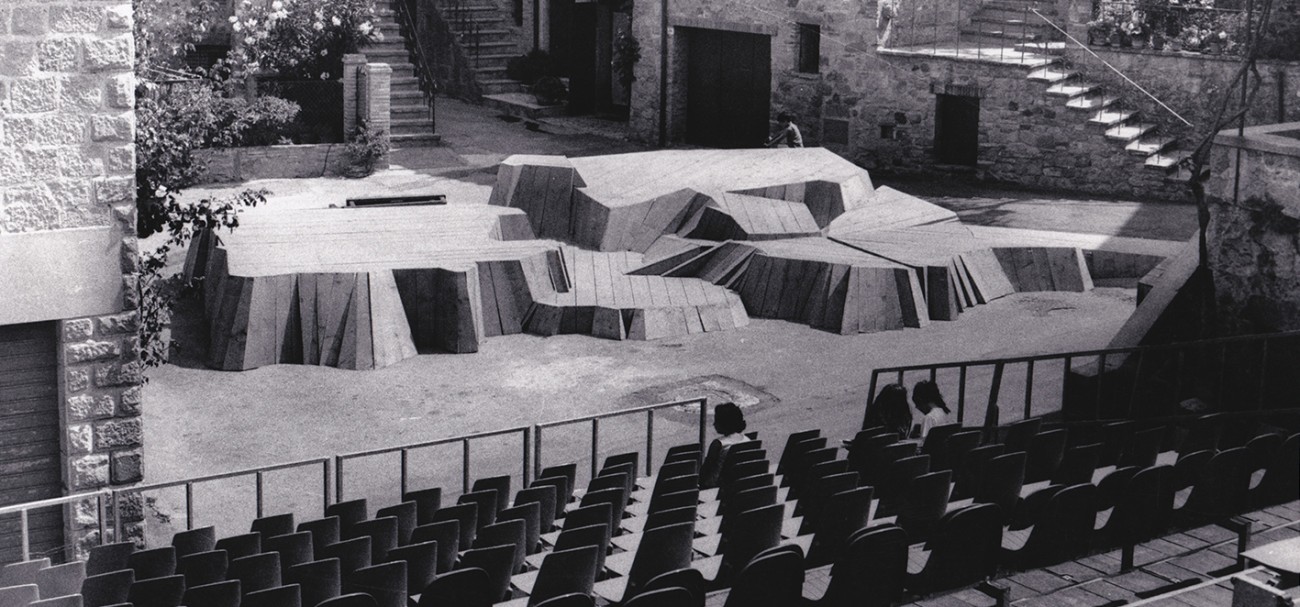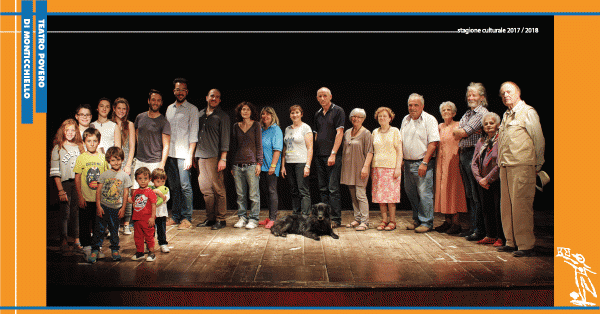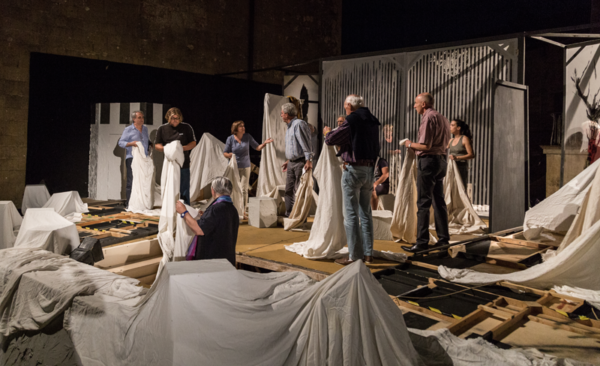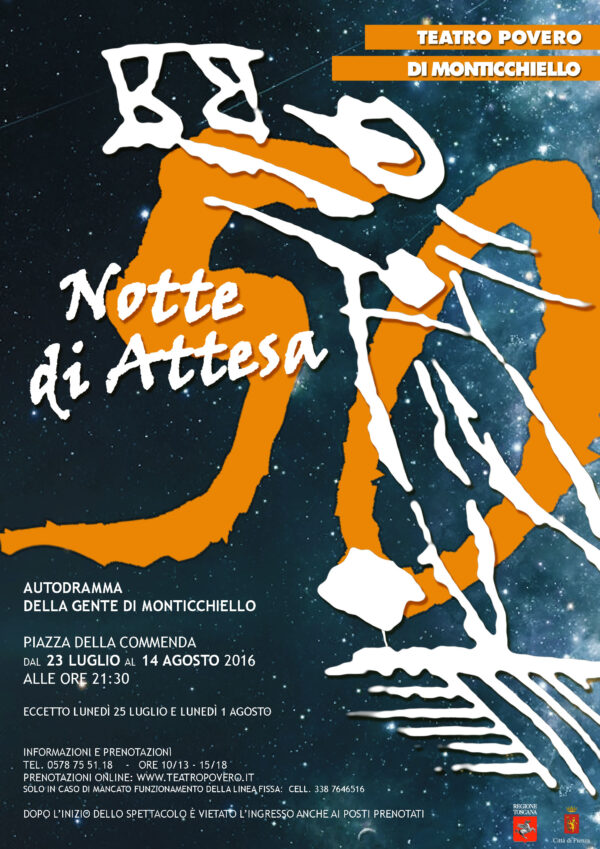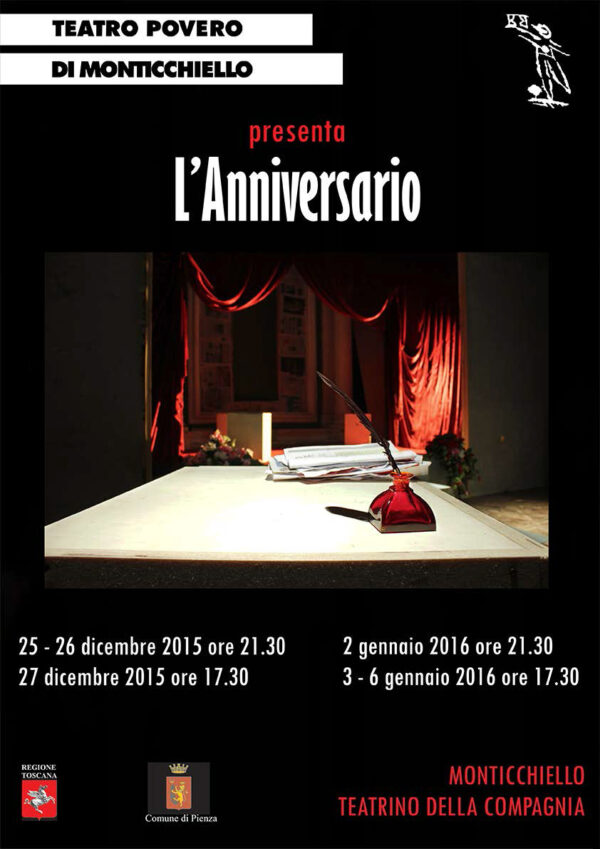‘When a people no longer has a living sense of its past, it dies. We can become creators ourselves, when we have a past.’ (CESARE PAVESE) Following on from the questions raised in 1994, this autodramma consisted of fragments or ‘torn pieces’ of drama, all addressing the use which can be made of memories from the past—or addressing the possible alternative decision to ignore or eliminate those memories.
In modern times, a group of tourists found themselves stuck in a former sharecropping village like Monticchiello, because their bus had broken down. They argued among themselves about the necessity or otherwise of maintaining historical memories of the agricultural past and of peasant political struggles. Individual members of the group had their own problems to face, relating to their own personal histories: a wide range of attitudes emerged, in relation to whether the past was relevant, necessary, or to be discarded.
Then the past of Monticchiello itself invaded and occupied the stage, with three separate dramatic vignettes of situations which could arise in the context of the extreme poverty and powerlessness which peasants were still experiencing in the 1950s. A background chorus reminded the audience of the attempts which were made at that time to change the situation, through collective political action.
The tourists eventually departed; the Monticchiellesi, with their memories, remained.

